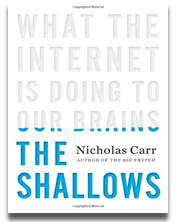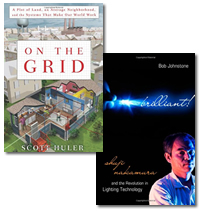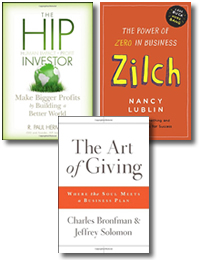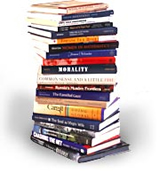November 15th, 2010
Dear Fuqua Students,
Thank you for taking the time to complete the Ford Library’s survey. We were delighted that 145 of you responded to our questionnaire!
There were a few themes that emerged in the comment section of the survey that we would like to address:
- Noise complaints. A number of you pointed out that the library can get rather noisy. Remember that the library is the only space in Fuqua reserved for quiet study. Please be considerate of your neighbors and remember to switch your phone to vibrate when entering the library. Phone calls can be taken outside the library or into the back photocopy room. Group study space is available in the team rooms located around Fuqua.
- Additional study space. A number of you requested additional seating, particularly near the windows. We are currently working with the Fuqua Administration to consider strategies for adding more study space to the library. Updates will be shared as they become available.
- Library Hours. Some of you requested additional library hours. Unfortunately, the library’s budget does not have the flexibility for the additional staffing cost that being open 24/7 would require. However, we are keeping track of the number of students in the library at various points in the day and week and using that data to assess the need for additional hours. In particular, there seems to be a need for extended hours around exam time. Hence, we plan to adjust our hours accordingly.
We truly appreciate the helpful feedback that you provided in the library survey. Please feel free to use the Ford Library Suggestion Box should you have additional comments to share.
Posted by Bethany in Announcements | No Comments »
November 15th, 2010

Carr, Nicholas G. The shallows : what the Internet is doing to our brains. Norton, 2010.
Technology writer Nicholas Carr’s new work is about the effect of the Internet on our brains. Carr argues that the calm, focused minds of book readers are being replaced by a new mind that takes in information in intense disjointed bursts. This new mind of the internet user is easily distracted, and finds it difficult to pay attention and to engage in learning.
For centuries, printed books have been the foundation of our culture. Soon after Gutenberg’s invention made books inexpensive, reading became the primary means of exchanging knowledge and experience. The act of reading a book required sustained attention to a static object. Engaging deeply with written words was not a natural state for human beings and our brains needed years of training to do it effectively. The practice of reading changed the physical structure of our brains, promoting our ability to think deeply and creatively.
Then came the Internet. Carr argues that reading on the internet is different from the reading of printed books. When people use the internet, they read in rapid bursts, sampling bits of information from many sources. Frequent use changes the brain’s neural pathways, compromising the ability to concentrate and to contemplate. Read more …
Posted by Meg in Book Reviews | No Comments »
Tags: Technology
November 12th, 2010
Our latest titles:
Ajami
Centurion
Girl who Played with Fire
How to Train Your Dragon
Modern Family, season 1
Toy Story 3
9th Company
Agora
City Island
Dear John
The Joneses
Law Abiding Citizen
My Name is Jerry
The Other Side of Immigration
Please Give
Sex and the City 2
She’s Out of My League
Surrogates
Winter’s Bone
Posted by Paula Robinson in New Resources | No Comments »
Tags: DVDs
November 5th, 2010

These two titles prove that technological innovation and insight can be “locally grown” in our market of ideas just down the road from Durham, in Research Triangle Park and Raleigh, NC.
Click the titles below for information on location and availability.
- Brilliant: Shuji Nakamura and the revolution in lighting technology. by Bob Johnstone. Prometheus Books, 2007..
.
Inspirational story of a young researcher from rural Japan, who invented the technology that underlies the solid-state lighting industry, energy-saving LED’s. After an impressive string of achievements in semiconductor research, he left his Japanese company, which then sued him for leaking trade secrets to Cree Research, based in Research Triangle Park, NC.
.
- On the grid : a plot of land, an average neighborhood, and the systems that make our world work. by Scott Huler. Rodale / McMillan, 2010.
.
Beginning with the systems in his Raleigh, NC home, author Scott Huler investigates the infrastructure and the workers who make his existence livable. He discusses water, electricity, and the internet; sewage removal; street and highway construction, while providing insight into why this complicated structure doesn’t collapse, or why it works as well as it does.
© Meg Trauner & Ford Library – Fuqua School of Business.
All rights reserved.
Posted by Meg in Book Reviews | No Comments »
Tags: Energy policy, Innovation, Sustainability, Technology
November 2nd, 2010
Ah autumn – the brilliant foliage, the crisp evening air, the smell of burning leaves, the many students beginning their job search. Yes, it’s that time of year when the thought on many minds is where will I work, and my advice begins with Onesource.
A jack-of-all-trades database, Onesource allows students to build a list of companies meeting their needs for where they want to work, which industry, how large or small, and/or whether the headquarters are in the US with subsidiaries in Tahiti. From that list, they can download the list and include data such as location, size, and officers names’ and titles.
Though Onesource can’t tell you if there’s a job opening within a company, it can help you pinpoint your search to a select list. Need more information? Feel free to ask us now.
Posted by Jane in Featured Resources | No Comments »
Tags: Library Databases
October 27th, 2010

Weintraub, Arlene. Selling the fountain of youth : how the anti-aging industry made a disease out of getting old, and made billions. Basic Books, 2010.
If taking hormones were dangerous, then all 20 year olds would have cancer. So goes one of the arguments made by promoters of anti-aging clinics in a new book by Bloomberg BusinessWeek science journalist, Arlene Weintraub. To turn back the clock, consumers in this industry devote their whole paychecks to treatments, and follow medical advice dispensed by Hollywood star Suzanne Somers. When their family MD’s balked about prescribing hormones that cause cancer, patients took their business to the new anti-aging clinics instead.
From its humble beginnings in the 1990’s to today’s $88 billion industry, author Weintraub takes the reader through the gamut of hopeful treatments, including injections with HGH and Botox, and the more natural dietary supplements, such as elixirs made from acai berries and resveratrol pills, distilled from red wine. She also discusses the battles between big pharmaceutical companies and independent compounding pharmacists, highlighting the problems in non-regulated drug products. She covers the lies and scams.
Weintraub states that anti-aging doctors are acting in good faith to help their patients. But she cautions that sometimes doctors are wrong. Anti-aging treatments have not been scientifically tested in double-blind studies. They may be ineffective or worse, causing harm to the patient. And now for the truly bad news – the only proven route to maintaining a youthful body involves exercise. Frequent workouts, while maintaining a healthy weight, is the only regimen that actually works to keep us young.
© Reviewer: Meg Trauner & Ford Library – Fuqua School of Business.
All rights reserved.
Posted by Meg in Book Reviews | No Comments »
Tags: Consumer behavior, Health Sector Management
October 8th, 2010
Our latest titles:
Iron Man 2
Get Him to the Greek
The Black Cauldron
Our Family Wedding
Prince of Persia: The Sands of Time
The Rescuers
Shutter Island
Taking Woodstock
Anything Else
Casino Jack and the United States of Money
The killer Inside Me
Letters to Juliet
Hachi
Karate Kid
Nightmare on Elm Street
Robin Hood
The Secret of Kells
Splice
Posted by Paula Robinson in New Resources | No Comments »
Tags: DVDs
October 7th, 2010

Three new titles focus on combining profit and higher purpose. Business and investing can have a soul, and make a positive difference.
Click the titles below for information on location and availability.
- The HIP investor : make bigger profits by building a better world. by R. Paul Herman. Wiley, 2010.
.
HIP stands for Human Impact + Profit, an investment approach that realizes the profits that capitalists seek while building a better world. The creator of the HIP methodology shows investors how to construct a portfolio of firms that meets five basic human needs and, in doing so, generates positive social impact, while simultaneously providing substantial financial returns. The book claims that the HIP approach outperforms the financial returns of the S&P in both up and down markets.
.
- Zilch : the power of zero in business. by Nancy Lublin. Portfolio, 2010.
.
Nonprofit CEO Lublin describes how corporations can cut costs and improve results by emulating not-for-profit organizations. Nonprofits survive — and thrive — on a shoestring, by using innovation, creativity and passion. Drawing on the experiences of key not-for-profit organizations, both large and small, Lublin provides practical advice on topics such as how to motivate staff without high salaries and how to market products and services for free.
.
- The art of giving : where the soul meets a business plan. by Charles Bronfman & Jeffrey Solomon. Jossey-Bass, 2010.
.
In the new philanthropy, donors seek to make a difference. They give purposefully, think strategically and monitor the results. Giving is a deeply personal process but it is also a business. This comprehensive guide to charitable giving shows nonprofits how to communicate with donors to help them make meaningful choices with their gifts. It also helps donors decide what types of gifts to give, how to structure their donations and how to manage tax issues.
© Meg Trauner & Ford Library – Fuqua School of Business.
All rights reserved.
Posted by Meg in Book Reviews | No Comments »
Tags: Investing, Philanthropy, Social responsibility
October 1st, 2010

In his book, Drive, Daniel Pink names the following books as essential for anyone interested in living a life of autonomy, mastery and purpose.
Click the titles below for information on location and availability.
Posted by Meg in Book Reviews | No Comments »
Tags: Success
September 28th, 2010
One of the small pleasures of my job is snooping on others. Well, maybe that’s a little extreme, but I do enjoy examining how Americans spend their free time and money. For instance, did you know that the pet market has been strong during this recession? Why? Well to quote a recent Mintel report, “Difficult, stressful times put a premium on the unconditional love and nurturing that pets bestow upon their owners.” So, when students ask about consumer trends or lifestyles, one of the first places I look is Mintel which provides coverage for the US as well as the UK and Europe.
Mintel can be found on the library’s database page. Once in, you’ll need to read and agree to the database’s conditions of use, and first time users must create a personal profile. After you’ve completed these steps, you have access to a full range of reports – from “The Social Dynamic of 18-24 Year-old Males” to “High Fructose Corn Syrup vs. Corn Sugar.”
Posted by Jane in Featured Resources | 1 Comment »
Tags: Market Research




